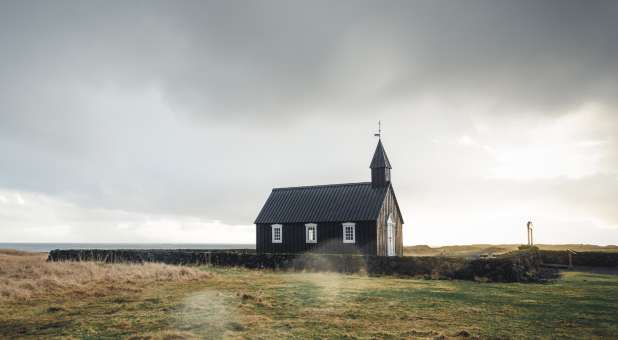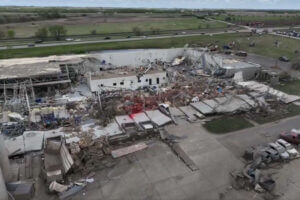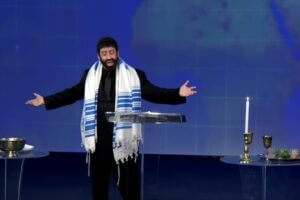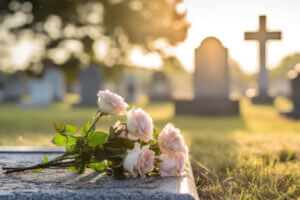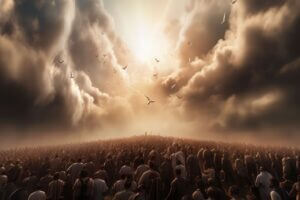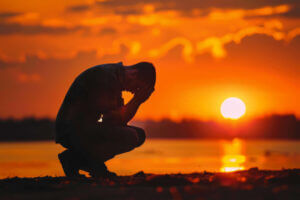Editor’s Note: This is the fifth of a nine-part series, with a new installment presented every day in Charisma Digital Daily. You can access the previous story here. These articles are excerpted from Stephen E. Strang’s God, Trump and COVID-19, which is now available to purchase. Click here to learn more.
At the beginning of 2020, none of us expected this pandemic. And few expected that battling the outbreak would create governmental powers in which America would begin to look like a police state. As new restrictions on gatherings were lowered to fifty and then again to fewer than ten people, it quickly became apparent that this pandemic would be a game changer. Going to sporting events, movies, theatrical events, concerts, and church meetings was suddenly forbidden.
New York Mayor Bill de Blasio threatened to close churches and synagogues “permanently” if they refused to shut down during the pandemic. And Virginia governor Ralph Northam declared that church gatherings of ten or more could result in a $2,500 fine and up to a year in jail.
Northam’s approach is much like the tactic taken in France. My friend Ken Timmerman from Florida was stuck in France on Easter and gave me an eyewitness account of the total lockdown. He said French President Emmanuel Macron issued an order that if you attended church once, you would receive a $150 fine. Twice, and the fine became $1,500. The third time, you would go to jail for six months. Many started to point out how grocery stores and other businesses that were deemed “essential” sometimes had hundreds of people in the store at one time. So why were churches so quickly deemed “nonessential”? And why was the public so quick to accept this? It rapidly escalated to a hot debate in the Christian community.
As I touched on in the introduction, Pastor Rodney Howard-Browne, a longtime friend of mine, was arrested and booked into a local jail on Monday, March 30, after holding Sunday worship services at The River at Tampa Bay, the church he leads. Howard-Browne was charged with unlawful assembly and violating the county’s stay-at-home order. He was later released on bail.
Originally coming to the United States as a missionary from South Africa, Pastor Rodney has been holding services where God’s presence has been moving in power for many years. His intention was to allow the Holy Spirit to move and heal the sick as they would come for prayer. After all, that is what the Bible says to do as believers.
The media loved this story—”crazy Pentecostal pastor endangers the health of his church members by recklessly disregarding governmental edicts for no ‘nonessential’ gatherings over ten people.” But the case brought up some interesting legal issues.
Whether churches are “essential” in the midst of this coronavirus crisis is a critical question that must take into consideration many factors. The related question, whether churches should open or close, must be considered in the context of each church and community.
Mat Staver, founder of Liberty Counsel, came to Howard-Browne’s defense, and the results were amazing. The county dropped the case because Staver sued for violation of the church’s constitutional rights to freedom of religion and freedom of assembly. On Charisma News we published an op-ed by Liberty Counsel stating its position in the case.
To navigate the media storm in wisdom and present the actual situation to the public after a heated debate had erupted, Liberty Counsel gave an articulate explanation, stating: “It is important to present the real facts surrounding the recent arrest of the pastor of The River at Tampa Bay. Many of the statements made by Hillsborough County Sheriff Chad Chronister are false. His statements have put both the pastor and the church in danger.”
The rest of the statement read as follows:
“On Thursday, March 26, Sheriff Chronister told the pastor and other staff members by speakerphone that the church could meet on Sunday, March 29, and that he had no intention of shutting it down, and no intention of arresting anyone. He gave these assurances after he was informed of all the precautions the church proposed to undertake, including encouraging seniors or people with predisposed health conditions to stay home, limiting attendance by enforcing a 6-foot separation, requiring each person to use hand sanitizers upon entry and installing over $100,000 of high-grade hospital air purifiers. A deputy sheriff also toured the church to inspect the premises the same day.
“The meeting with Sheriff Chronister and his deputy on March 26 was called to discuss the draft Hillsborough County order presented by the council the same day. That order was then passed on Friday, March 27, and went into effect at 10 p.m. This was the first and only enforceable order passed by the county. Based on this order and the fact that the church went above and beyond the health guidance, the sheriff gave the green light for the church to meet. On Saturday, March 28, the church was thoroughly sanitized. On Sunday, March 29, the church met. Then on Monday, the same sheriff who gave the green light to meet a few days earlier held a press conference announcing the pastor’s arrest, during which Sheriff Chronister made many false statements.
“Following the pastor’s arrest, on Wednesday, April l, Florida Governor Ron DeSantis issued Executive Order 2020-91, stating: ‘Attending religious services conducted in churches, synagogues and houses of worship’ is an ‘essential activity.’ The same day, Executive Order 2020-92 required that his order supersede any contrary local government order respecting essential services and activities. The Hillsborough County order restricting churches was therefore overruled.
“To answer the question of whether churches are essential and whether the doors should be opened or closed requires a review of each case. There are an estimated 500,000 or more Protestant, Catholic, and Orthodox churches in America. These range from small to large, and each church has a different community of service or people who attend. The people who attend and the community they serve run the gamut from old to young, upper class, middle class, poor, urban, rural, inner city, country and include a wide variety of ethnic, racial, and language diversity.
“Based on the demographics of the people who attend and the capability to broadcast online, some churches are better off if they close through this time. However, some churches provide essential ministries, besides music and the pastor preaching from the pulpit, which cannot be carried out online.
“The River Church feeds 900 people each week by providing free food from its farmer’s market located inside the church lobby. The church grows its own food and farms tilapia to give to the community. When the doors of this church close, people starve, including children.
“Many people are experiencing increased stress. Many have lost their jobs and do not know where they will get the next meal. Many people suffer from mental, emotional and physical pain. Those with intractable physical pain are not able to get relief from their chiropractor, physical therapist or pain management specialist. Experiencing pain 24/7 often leads to depression and even suicide.
“Battered women are locked in their homes with the abuser. Children are out of school and are restricted in some places from going to the parks or beaches. Without work, the extra stress can become overwhelming.
“Some churches provide counseling. Some provide food, clothes and money to those in need.
“The River Church serves a large community that has no access to the internet. Even some people who have access to the internet lack the bandwidth to watch a service online.
“To answer the question of whether a church is essential and whether it should open or close its doors, people need to look beyond their own circumstances to see the mounting needs and hurting people who are less fortunate and who need the ministry of the local church.
“No shepherd of the flock wants to do anything that would endanger the community. But the question is, should we allow some discretion to follow health guidelines while determining what can and cannot be provided online? Or do we want to give this unfettered authority to a single government official?
“Perhaps it is important to reconsider what is essential about the church. Some are far more essential than others. A blanket answer to the question is too simple and serves a grave injustice to many.
“Maybe there should be more discretion given to the shepherds of the church to determine whether the church should meet, and if so, how best may the church protect those who attend and serve the needs of the community. This is a much better approach than a one-size-fits-all template that labels churches as ‘non-essential.’
“The above says nothing about the constitutional rights of churches under the First Amendment and the statutory rights under the Religious Land Use and Institutionalized Persons Act. These rights do not evaporate in a time of crisis.
“Are we willing to allow one person, whether state or local, to have the unchecked discretion to write a church into or out Alarming Anti-Christian Trends of existence by one word—the word ‘essential’? Such authority is extraordinary and runs counter to American history.
“The last question is one for the church: ‘Is the ministry of the church so essential that the community groans in its absence?’ If any church is not that essential, then maybe that church needs to ponder what changes should be made in order to be the essential lighthouse and place of refuge that God desires.” {eoa}
To be continued in God, Trump and COVID-19. To purchase the full book now, click here.
See an error in this article?
To contact us or to submit an article


